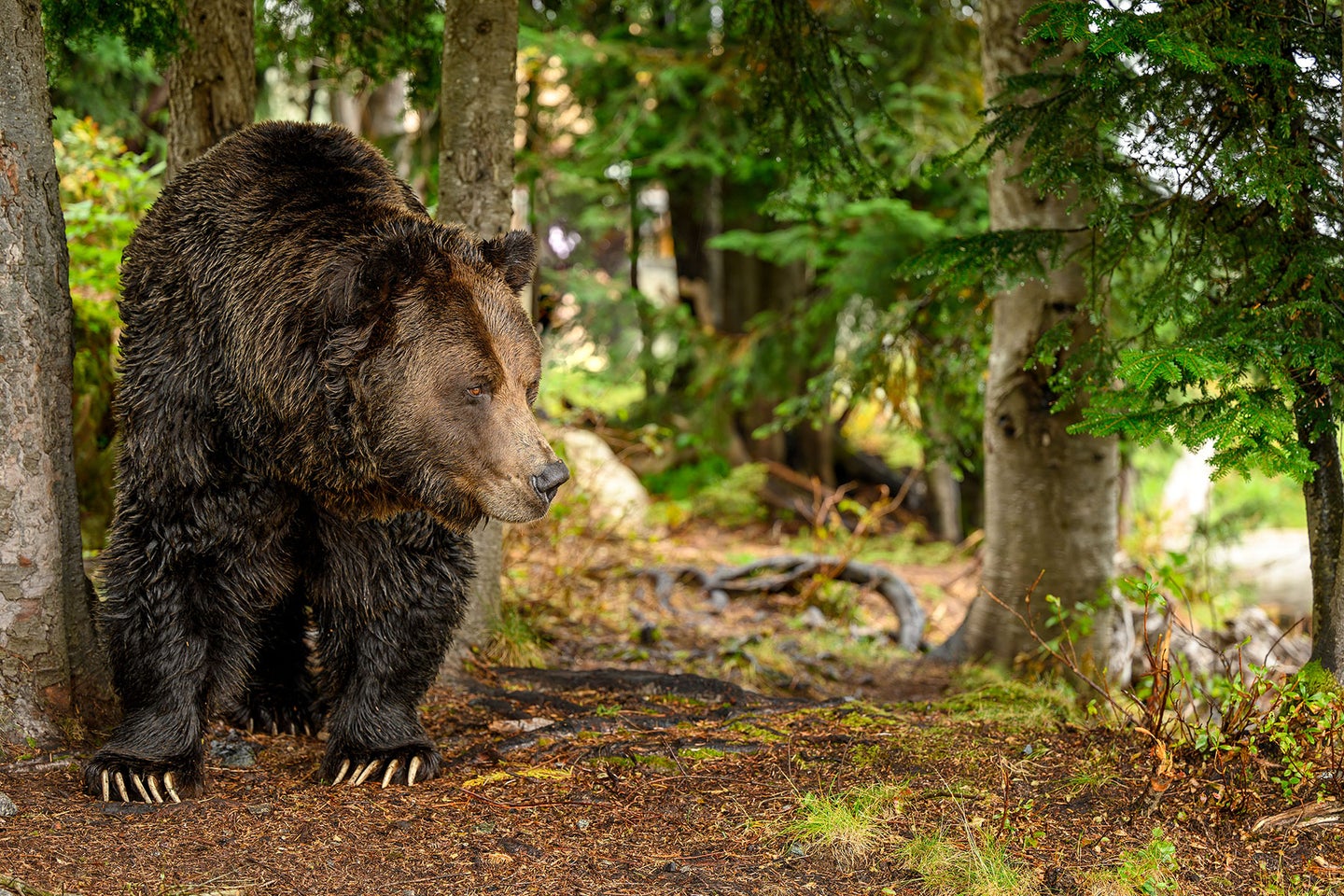An Environmental Group is Buying Up Millions of Dollars Worth of Commercial Hunting Permits in Canada
The Raincoast Conservation Coalition is now the largest holder of commercial hunting licenses in the Province of British Columbia

After two years of fundraising, a Canadian environmental group known as the Rainforest Conservation Coalition has purchased the exclusive rights to guide non-resident hunters in a huge swath of British Columbia’s Great Bear Rainforest. But according to B.C.-based hunting groups familiar with the issue, they won’t be guiding any hunters on the tract of land any time soon, at least not successfully. Instead, the Rainforest Conservation Coalition’s purchase of the massive outfitting lease—known in Canada as a guiding tenure—will effectively lock non-resident hunters out of the area.
The outfitting lease, situated on the southern end of the Great Bear Rainforest, covers 18,000 square kilometers, roughly 4.5 million acres, of Canadian Crown Land. Raincoast purchased the tenure from the estate of a legitimate hunting outfitter who recently passed away, a source with the pro-hunting group Hunters for B.C. tells Field & Stream.
Massive Fundraising Effort
It reportedly cost the organization $1.92 million to acquire the tenure, which comes with the infrastructure needed to run a successful guiding outfit—like cabins, a base lodge, boats, planes, and ATVs. According to Raincoast’s website, they received 700 individual contributions from around the world in order to raise the funds.
“We would like to express our heartfelt gratitude to you, our amazing donors, for caring enough to give your incredibly generous support to this transformative initiative,” reads a January 4 statement on the Raincoast website attributed to Raincoast’s Guide Outfitter Coordinator Brian Falconer. “Hundreds, and ultimately thousands, of animals and their offspring will live out their lives in this vast and beautiful landscape, thanks to you.”
Scott Ellis is the Executive Director of the Guide Outfitters Association of B.C. He tells F&S that Raincoast’s motive for buying up hunting tenures is simple: They want to curtail legal hunting activities inside the Great Bear Rainforest. “Raincoast claims not to be an anti-hunting organization. But they act like an anti-hunting organization, and they talk like an anti-hunting organization,” Ellis says. “They were one of the organizations behind the closure of the grizzly bear hunt throughout the province in 2017, and they’ve been buying guide territories for 20 years.”
With its most recent purchase, Raincoast says it now owns exclusive non-resident guiding rights to six guide territories that comprise 87.5 percent of the 15-million acre Great Bear Rainforest. According to Ellis, B.C.’s 2017 ban on grizzly bear hunting greatly reduced the commercial value of those guide territories because the area was a popular destination for non-resident grizzly bear hunters. And those foreign hunters made up a substation portion of local guide and outfitter revenue streams.
Prioritizing Bear Viewing Over Bear Hunting
Bear viewing has increased in popularity in the the Great Bear Rainforest since the grizzly bear hunting was outlawed in 2017. And Raincoast is working to support local companies that run bear viewing outfits for tourists. “They were very strategic in how they showed First Nations communities how to generate revenue by viewing bears,” Ellis says. “Whereas buying a guide territory may be difficult, the viewing is much easier business to get into.”
Falconer has gone on record to say that Raincoast continues to purchase tenures in hopes of keeping non-resident hunters out of the Great Bear Rainforest—particularly in the event that the B.C. government reverses course and reinstates the grizzly bear hunt, which has happened in the past. In doing so, Falconer says, they’ll not only protect grizzly bears but also safeguard the the economic interests of those who draw revenue from grizzly bear viewing operations.
“The behavior changes really radically when these animals are hunted,” Falconer said recently during an interview on a B.C.-based news radio program. “In 22 years of taking people to see bears in close proximity, there were places where the bears were hunted, and we would go in and never see them. Within two years of buying out the tenures, there would be 17, 18 grizzlies feeding along the river.”
A Slight of Hand
Though Raincoast’s stated mission is to rid southern B.C. of what it calls “commercial trophy hunting,” the group still claims publicly that they are actively guiding hunters on the six large tenures they now own in the Great Bear Rainforest. This is likely because the B.C. government designed the tenure program with hunting in mind—and ostensibly requires that some form of hunting be carried out by the license holder. In fact the B.C. Wildlife Act, a body of laws that govern hunting and fishing activities throughout the province, says that habitat managers can revoke or cancel tenures that aren’t being used for hunting purposes.
When asked by John Streit of 980 CKNW if he’s worried about any of the Raincoast’s tenures being canceled due to non-hunting use, Falconer said: “We do hunt them. We’re not very successful. We have a very fussy clientele. But we do absolutely comply with the Wildlife Act.”
Ellis calls the strategy a loophole. “That’s how they’re able to comply with the Wildlife Act,” he says. “In that way, they’re supposedly meeting their obligation for the hunting tenure but not the intent of the act.”